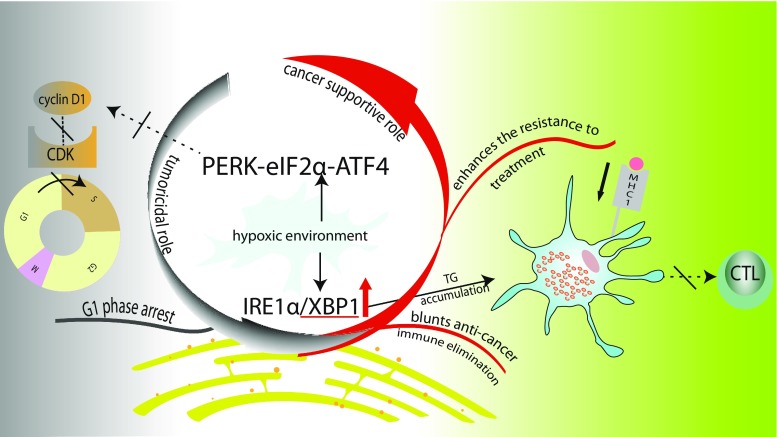Fig. 2.
Dual roles of UPR in cancer. Cancer cells often live under hypoxic conditions which activate the IRE1 and PERK branches of the UPR to support cancer growth. On the one hand, cancer cells exploit the prosurvival UPR signaling to conquer the lethal effect of treatments. On the other hand, upregulated XBP1 induces the accumulation of triglyceride (TG) in dendritic cells, which decreases the expression of the major histocompatibility complex-1 (MHC1), thereby hindering the activation of CD8+ T cells. The immune sabotage of XBP1 contributes to a blunted immune elimination of cancer cells. In contrast, the G1 phase arrest of cancer cells is also related to the activation of the PERK branch of the UPR, suggesting that UPR has dual roles in determining the fate of cancer cells. TG triglyceride, CTL cytotoxic T lymphocyte, MCH1 major histocompatibility complex1, CDK cyclin dependent kinase

